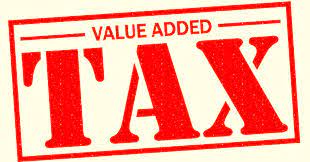In a recent development, the Chairman of Tinubu’s Tax Reforms Committee has hinted at the possible suspension of the 7.5% Value Added Tax (VAT) on diesel and other related products. This move comes as part of ongoing efforts to alleviate the burden on consumers and businesses amidst the current economic challenges. The committee, led by a renowned tax expert, has been tasked with reviewing the existing tax policies and proposing reforms that will stimulate economic growth and provide relief to the Nigerian
Nigerians could soon see a potential suspension of the recently reintroduced 7.5 percent Value Added Tax (VAT) on imported Automotive Gas Oil (diesel), according to Taiwo Oyedele, the Chairman of the newly formed Presidential Committee on Fiscal Policy and Tax Reforms. Oyedele has provided a hint regarding this development.
In a significant development, President Bola Ahmed Tinubu has recently announced the appointment of Oyedele as the chairman of a crucial committee. This decision, made last week, marks a notable step forward in the administration’s efforts to address pertinent issues. The appointment of Oyedele to this key position is expected to bring fresh perspectives and expertise to the committee’s work.
In a significant development, Mr. Oyedele has been appointed to a key position where he will spearhead various crucial responsibilities including tax law reform, tax harmonization, and fiscal policy design. This appointment is expected to have a profound impact on the future of taxation and fiscal strategies.
In a bid to bolster government funding, prominent political figure Bola Tinubu has unveiled a strategic plan aimed at expanding the tax bracket. The move, if successful, is expected to generate additional revenue for the government. Tinubu, a well-known figure in Nigerian politics, has long been recognized for his astute financial acumen. With the aim of addressing the country’s fiscal challenges, he has proposed widening the tax bracket to encompass a larger portion of the population. By broadening the tax base, Tinubu hopes to tap into previously untapped sources of revenue. This expansion would require
In a recent statement, Adelabu Zacch Adedeji, the Special Adviser on Revenue to Tinubu, has outlined their ambitious goal of updating the tax system to foster sustainable development. The primary objective is to achieve a minimum Tax-to-GDP ratio of 18 percent within the next three years. Adedeji emphasized the importance of striking a balance between encouraging investment and promoting economic growth, ensuring that these reforms do not hinder the nation’s progress.
In a recent Twitter post, Oyedele made a bold statement, reiterating his stance against the controversial concept of “taxing poverty.”
In a recent response to a critic, the Chairman made a significant announcement regarding tax exemptions for Nigerians. According to the Chairman, individuals earning less than N30,000 will be exempted from paying taxes. Additionally, small businesses earning N25 million or less will also be exempted from Value Added Tax (VAT). This decision aims to alleviate the financial burden on low-income earners and small enterprises.
In a recent development, the Nigeria Customs Service, in collaboration with the Federal Inland Revenue Service, has issued a notification to diesel importers regarding the forthcoming implementation of Value Added Tax (VAT) starting from July 2023. This decision marks a significant change in the taxation policy surrounding diesel imports in the country.
In a recent development, Customs has announced that the VAT Modification Order 2021 has been implemented. This order brings about changes in the exemption of petroleum products, specifically those falling under HS codes 2709.00.00.00 – 2710.19.12.00.
In a recent development, it has been revealed that diesel fuel is categorized under HS Code 2710.19.21.00. This code plays a crucial role in classifying and identifying various products for international trade purposes. Diesel, a commonly used fuel in many industries,
In a recent statement, Oyedele called for the suspension of the 7.5 percent Value Added Tax (VAT) on diesel. The advocate highlights the significant impact of rising transport and other expenses following the removal of petrol subsidies.
Advocacy Grows for Government to Lower Minimum Tax Rate, Alleviating Burden on Struggling Companies In a bid to provide relief to struggling businesses, calls for the government to reduce the minimum tax rate have been gaining momentum. This move aims to alleviate the burden faced by companies that are operating at a loss, yet are still required to pay taxes. The current minimum tax rate has been a source of concern for many businesses grappling with financial difficulties. Despite facing losses, these companies are obligated to fulfill their tax obligations, which further exacerbates their financial challenges. Advocates argue that this policy places an undue burden on struggling businesses, hindering their ability to
Nigerians are expressing their concerns over a new tax that is expected to have an impact on energy costs following the removal of fuel subsidies.
Muda Yusuf, the Chief Executive Officer of the Centre for the Promotion of Private Enterprises, recently commented on the potential impact of a 7.5 percent Value Added Tax (VAT) on goods and services. According to Yusuf, determining the exact percentage increase that may result from this VAT hike is a challenging task. Energy Costs Account for 25-30% of Total Production Expenses, Study Finds In a recent study, it has been revealed that energy costs play a significant role in the overall expenses of production, accounting for approximately 25 to 30 percent. This finding sheds light on the substantial impact energy expenditures have on businesses and their bottom line. The study, conducted by experts in the field, examined the relationship between energy costs and total production expenses across various industry
According to a recent analysis, the implementation of a 7.5 percent value-added tax (VAT) on diesel could potentially lead to a moderate rise of approximately 5 to 10 percent in the prices of goods produced domestically. This development has raised concerns among industry experts and consumers alike.









